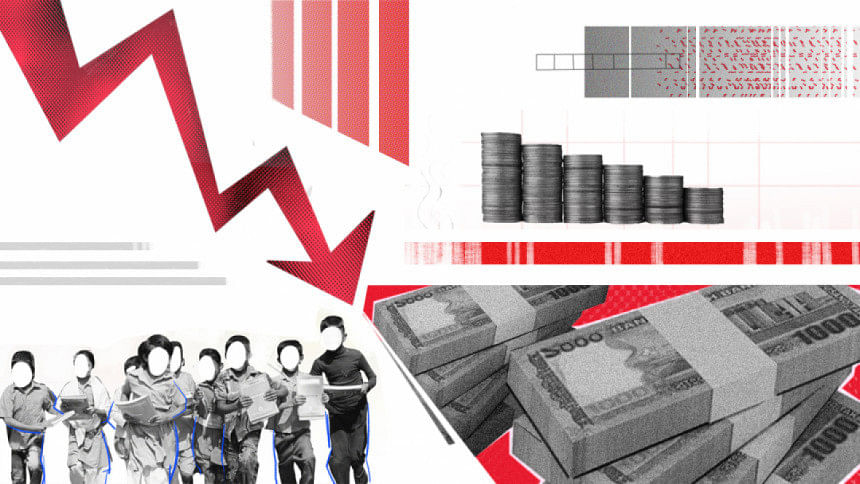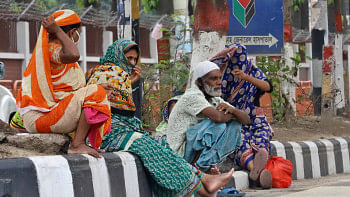How education spending reveals a government’s true priorities

The truest measure of a government's sincerity is not found in its slogans or manifestos, but in how much importance it places on education. And the clearest, most objective indicator of that commitment is the budget allocated to the education sector. Numbers don't lie—they tell us where priorities truly lie. Let's consider the track record of the previous government. In FY2018, they allocated an annual budget equivalent to 2.2 percent of the GDP to education. A gradual decrease followed: in FY 2021, the education budget allocation was equivalent to 2.09 percent of GDP; 2.08 percent for FY2022; 1.83 percent in FY2023; 1.76 percent in FY2024; and finally, a historic low of just 1.69 percent in FY2025. Let that sink in: a steady, deliberate decrease in education spending over the years.
But the story doesn't end with shrinking budgets. In reality, the actual investment in meaningful education was even lower than what the budget figures claimed. To make matters worse, the leadership of the education ministry was entrusted to corrupt figures. University leadership, too, was shaped not by merit but by blind loyalty. Vice-chancellors (VCs) and pro-VCs were chosen for their political submissiveness and academic mediocrity, not for their vision or scholarship. So, let's ask ourselves a simple but serious question: can a government that systematically devalues education claim to be patriotic?
One of the more theatrical attempts by the former government to appear reform-minded was the rollout of a new national curriculum, which they claimed was inspired by models from Finland and Japan. But here's the hard truth: no curriculum, no matter how well-designed, can succeed without quality teachers. Even Finland's world-renowned system would collapse if implemented with Bangladesh's current salary structure, training, and social value of primary and secondary school teachers. A curriculum isn't magic; it's just a framework. What brings it to life are the people who teach it.
At the university level, physics is physics, whether you are at Harvard, MIT, Dhaka University or Rajshahi University. But the outcomes vary drastically. Why? Because of the teachers. If you swapped Harvard's physics faculty with that of DU, Harvard would begin to falter, and DU would soar. That's the transformative power of inspired educators. The real priority, therefore, should have been to recruit, train, and retain excellent teachers, to elevate the profession and make it desirable to the nation's best minds. Instead, the new curriculum added confusion, anxiety, and disappointment to an already stressed system. And in many ways, this educational frustration played a quiet but significant role in the downfall of the previous regime.
I still hold hope in the current government. But that hope now hangs by a thread, and it depends entirely on the next national budget. If the interim administration allocates a budget that's equivalent to at least 4.5 percent of our GDP, my confidence will remain. If they dare to go further—to five percent or beyond—it will be a historic moment for Bangladesh, and a sign that we finally have a government that understands the foundation of nation-building. But if they repeat the Awami League government's mistakes and hover around two percent, my optimism will vanish. Because the truth is, the root of nearly every crisis in this country—corruption, inequality, intolerance, weak institutions—can be traced back to one thing: a broken education system. To build a developed nation, we need enlightened minds. And the only scalable way to produce enlightened minds is to invest in educational institutions. When you hire truly exceptional teachers, you don't need an elaborate curriculum; their thinking, speaking, and behaviour become the curriculum.
Now, a pressing question: what if the government listens? What if we suddenly double the education budget? How should that money be spent? First, we must face an uncomfortable truth: Bangladesh does not have a single university that qualifies as a real research university. What we currently call universities are, in reality, teaching colleges. A genuine research university has multiple postdoctoral researchers in each department, both local and international. Globally, it's not uncommon for departments in top institutions to have 50 or more post-docs. The same cannot be said for Bangladesh. To change that, we must offer international-standard fellowships. That means at least Tk 100,000 per month for post-docs, and at least Tk 80,000 per month for PhD students. Without that, we simply won't attract top talent.
Of course, if PhD students and post-docs are paid well, their supervisors—our faculty members—must also be compensated fairly. At a minimum, salaries should be aligned with those in India or Pakistan. The same logic applies to teachers at primary, secondary, and college levels. Only then will we see our best minds return from abroad and choose teaching not as a last resort, but as a calling. This is not a utopian demand. We are not asking for salaries matching those of the West. We are simply asking to consider and compare with our South Asian neighbours.
To reverse the trend of brain drain, we must create an ecosystem for meaningful, world class research. That means building new institutes, upgrading university infrastructure, and hiring outstanding researchers. It also means freeing critical institutions from the shackles of bureaucracy. The University Grants Commission (UGC) should be made an independent body. Similarly, organisations like the Bangladesh Atomic Energy Commission (BAEC) and the Bangladesh Council of Scientific and Industrial Research (BCSIR) must be liberated from ministerial control. Their researchers should receive competitive pay and benefits.
Let me illustrate how our system treats talent. A scientist from the BAEC recently won a Fulbright scholarship, one of the most prestigious academic awards in the world. And yet, the higher authorities denied him leave to pursue it. Meanwhile, bureaucrats routinely travel abroad on public money, for conferences, training, or "exposure visits" of questionable value. Many even go for higher education on government funding, with full leave granted. But a scientist with a Fulbright? Denied. This hypocrisy reveals a deeper rot. Merit is punished, mediocrity rewarded. Talented individuals aren't nurtured, they are pushed away. Promising young lecturers are blocked from going abroad for PhDs unless they complete two years of service. As a result, many drift into university politics, get trapped in networks of convenience and compromise, and never rise to their potential.
Education reform is not a luxury. It is not something we can "get to later." It is the first and most urgent step towards building a better Bangladesh. And at the heart of that reform must be respect for knowledge, for teachers, and the pursuit of truth. Allocate at least 4.5 percent of GDP to education in the upcoming budget. If you dare to go further to five percent or more we will know: we have, at long last, a government with vision. If not, the people will judge you by the same metrics we used to judge your predecessors. Because in the end, budgets are moral documents. They reveal what a government truly values. And history will remember those who chose to invest in minds, not monuments.
Dr Kamrul Hassan Mamun is professor in the Department of Physics at Dhaka University. He can be reached at [email protected].
Views expressed in this article are the author's own.
Follow The Daily Star Opinion on Facebook for the latest opinions, commentaries and analyses by experts and professionals. To contribute your article or letter to The Daily Star Opinion, see our guidelines for submission.

 For all latest news, follow The Daily Star's Google News channel.
For all latest news, follow The Daily Star's Google News channel. 










Comments